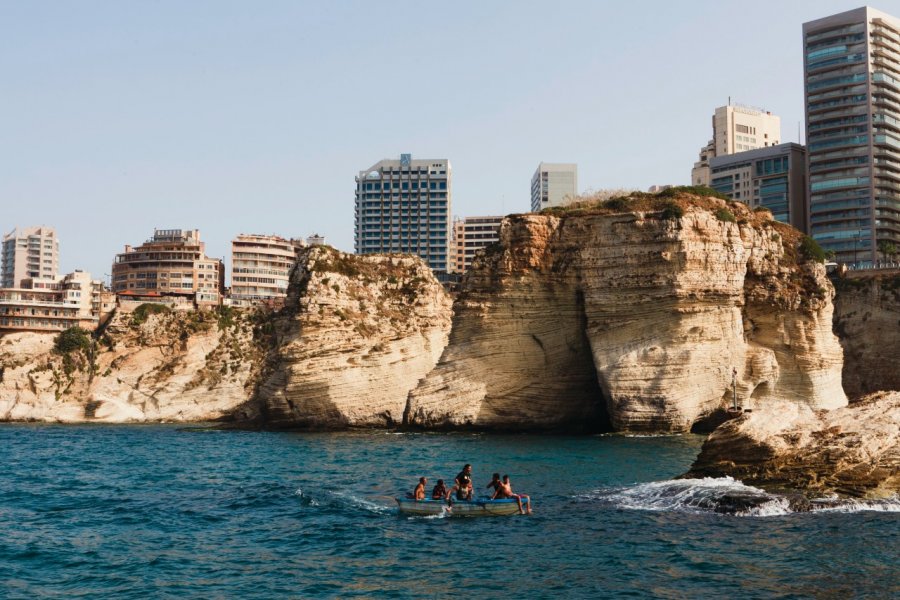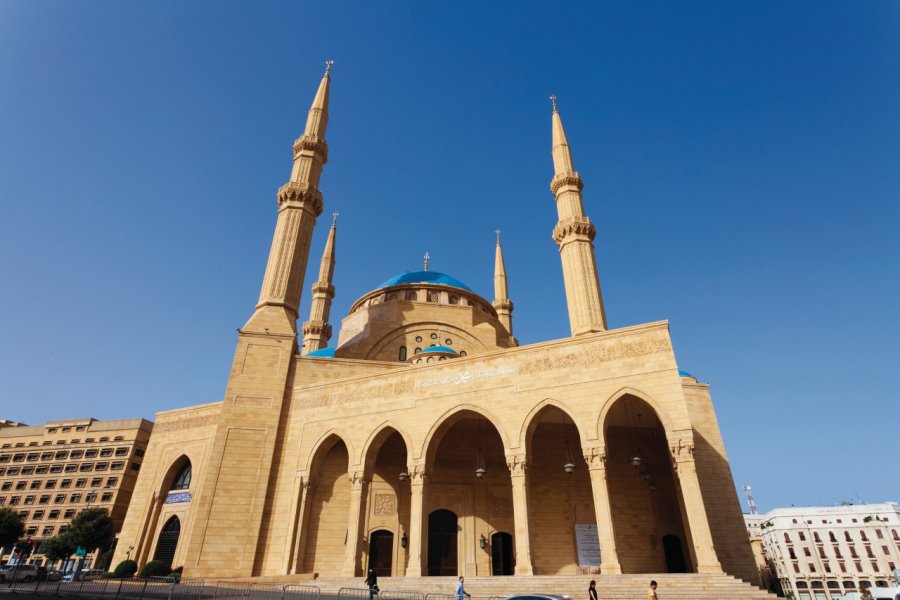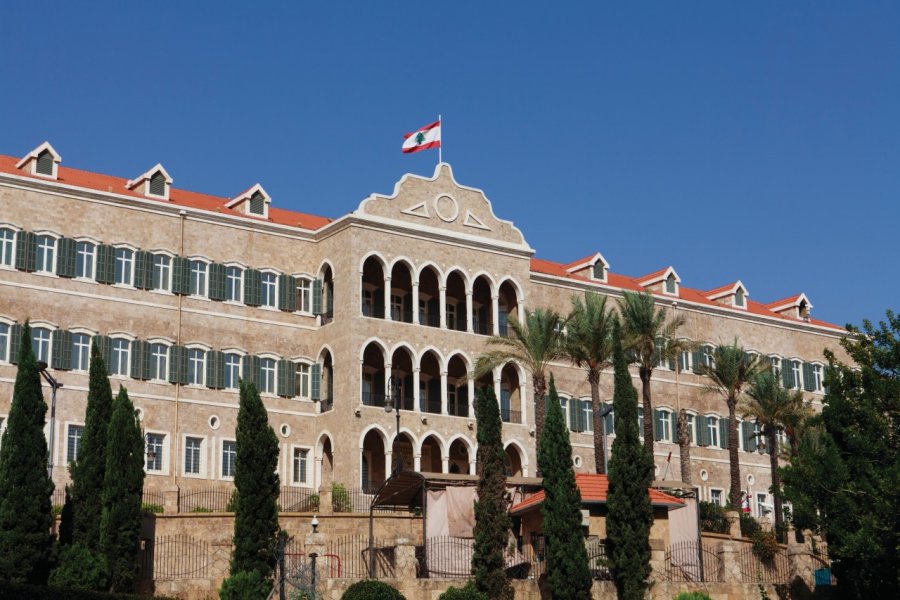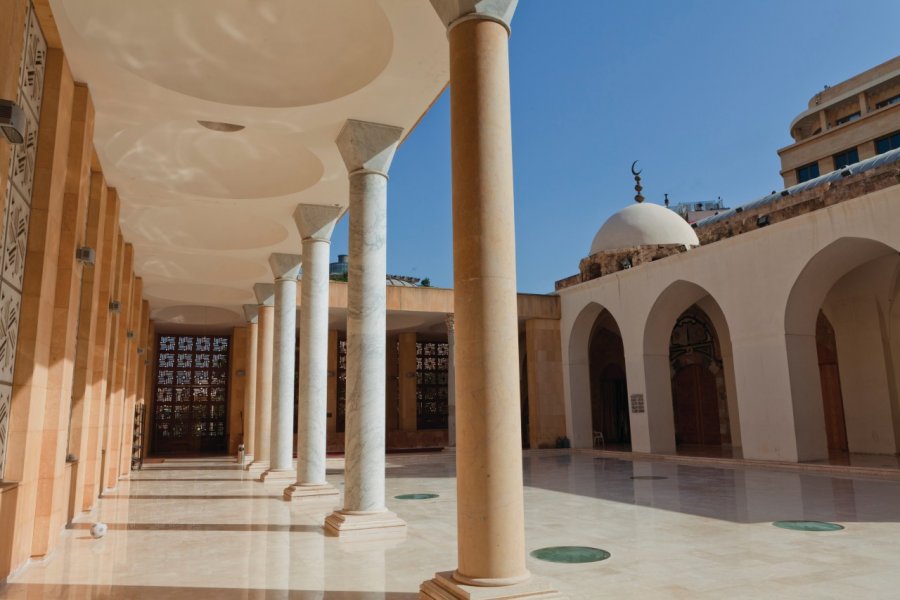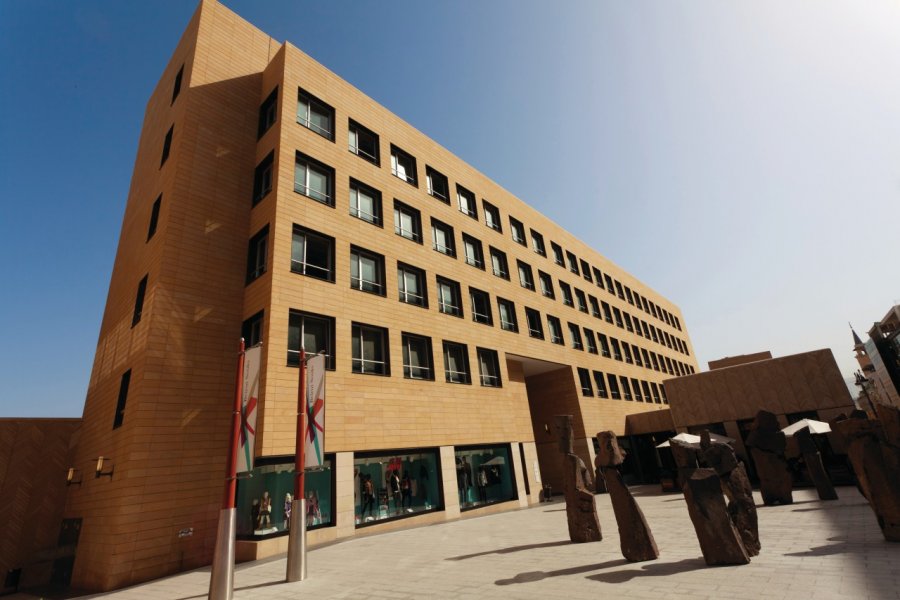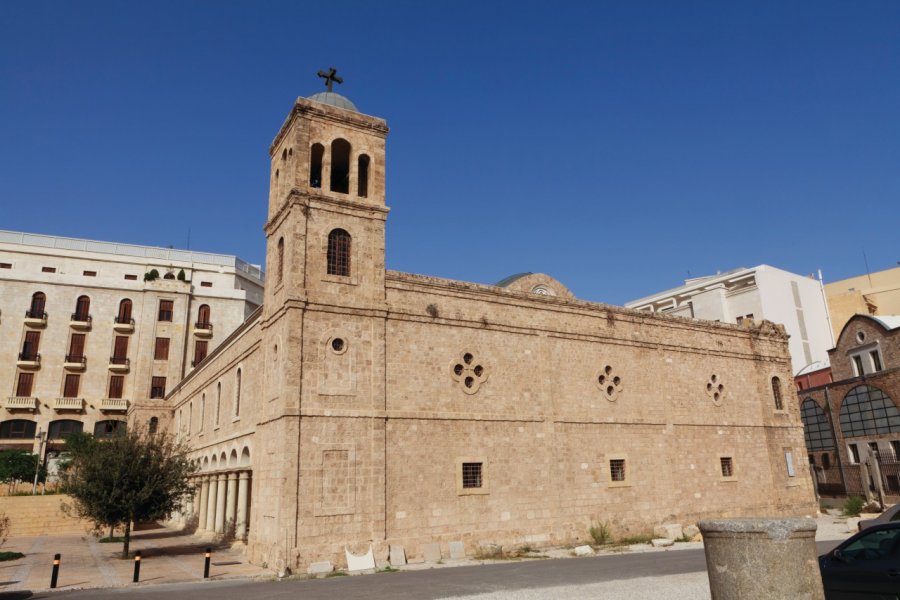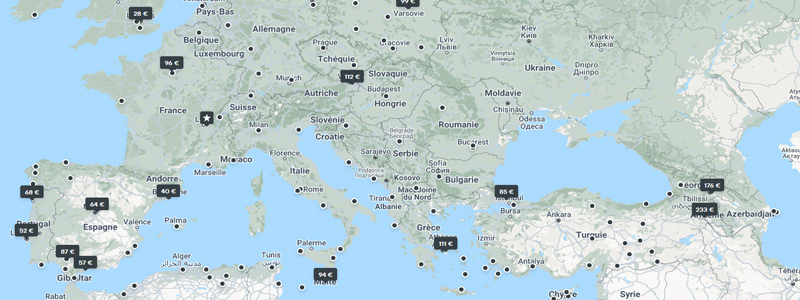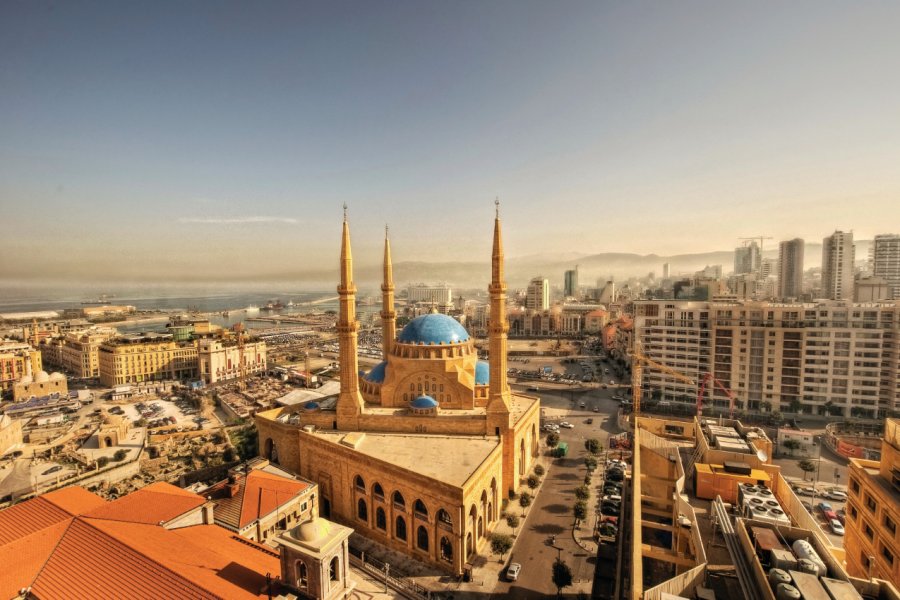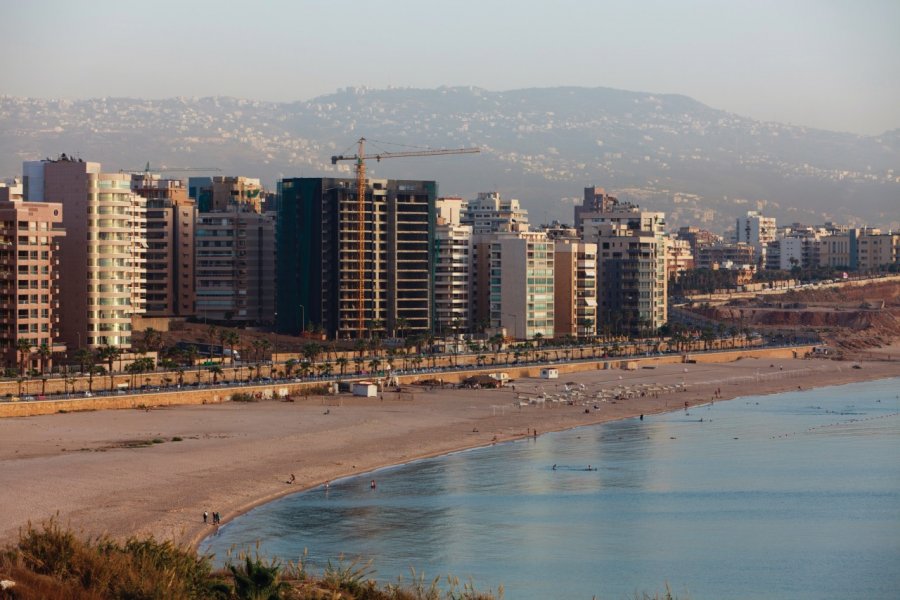Travel Guide Beirut
Beirut. The capital of Lebanon was for many years a battlefield. Today, in the aftermath of the Lebanese civil war, it is reborn with an amazing vigor. It is drawing new shapes, moving away from its past to invent a future, savoring the present with an intensity that was long denied it. Everything goes very fast in this metropolis, a true symbol of Lebanon's history, and as soon as you set foot in it and understand how life works here, chaotic, indocile, warm, this desire to munch the present to the fullest, which inhabits the city dwellers with their frank eyes, their contagious smiles and their unlimited hospitality, grabs you and throws you forward. In Beirut, everything seems possible. You meet people, you talk as loud as you laugh, you stay in restaurants and dance until the wee hours before parting, delighted. A nightlife without end! The Beirut tourist guide offers multiple walks through the neighborhoods of Hamra, Achrafieh or downtown, taking the visitor from archaeological remains to innovative art galleries, from trendy restaurants to original shopping addresses. Lebanese cuisine (tabbouleh, hummus...), bumpy cabs, wisps of hookah smoke escaping from the terraces and crazy nights are also on the agenda. And what about the shimmering light that envelops Beirut at dusk? Why deprive yourself of such an exotic getaway only four hours from Paris?
What to visit Beirut?
Suggested addresses Beirut
When to go to Beirut?
With more than 300 days of sunshine per year, the question "When to go to Beirut?" finds an easy answer: all year round! However, this Mediterranean climate can be contrasted in winter, beautiful sunny days are frequent and often interrupt two or three days of rain. Thus, bad weather never lasts very long. On the other hand, summer is the high season and the hottest period, and it almost never rains. The humidity level is particularly high on the coast and it is the season of festivals and lively evenings on the rooftops of the capital and on private beaches. Hotel rates rose at that time. The best time to travel to Beirut is certainly in the spring: if you go there in March-April, you will enjoy a mild and dry climate, but with short episodes of sand winds, called khamsin, that turn the Lebanese sky yellow. Walks along the cornice and in the alleys of Ashrafieh are also very pleasant in September and October, making autumn a good solution to "When to go to Beirut?
Weather at the moment
The high tourist season in Lebanon corresponds to the major European vacations, namely the summer. Beirut's temperature rises then, and the days of July and August can even be a bit suffocating, the city becoming much more animated at night. While winter is generally rainy, Beirut's weather becomes pleasant in spring, despite episodic sandy winds, as does autumn with its enchanting sunsets.
Beirut is not a particularly cheap city. Fortunately, the smartest people will always find a way to discover this city at a lower cost. The currency is the Lebanese pound (LL). It is very common to pay large sums - such as hotel nights - in dollars, but current expenses are usually in Lebanese pounds. Beirut has a large number of vending machines in which both currencies can be withdrawn.
No need to apply for a visa to go to Beirut. A simple entry stamp on your valid passport is sufficient. Entry to Beirut and Lebanon is free for one month (renewable up to 3 months) for nationals of 79 countries including France, Belgium, Switzerland and Canada. It is issued without any problem at the airport of Beirut. It is possible to extend your visa at the General Security in Beirut which is located on Damascus Street near the French Embassy and the National Museum. Please note that visiting Lebanon will not be possible if you have an Israeli visa in your passport.
Advice. Always carry your passport during your stay in Beirut. Army checks are common on some roads in the country and in the evening, the gendarmerie also makes unannounced checks inside the Beirut area. As a tourist in a rental car, you will be quite privileged.
No particular vaccine is required to travel to Beirut. As for drinking water, you must be very careful and it is not recommended to drink the water that comes out of the tap in the Lebanese capital, at the risk of exposing yourself to a painful tourista. However, you can boil it to cook pasta without risking getting sick. Moreover, there are many French-speaking doctors in Beirut, whether in the hospitals of Achrafieh or Ras Beirut. The French Embassy in Lebanon has a list of French-speaking doctors on its website (www.ambafrance-lb.org).
Practical information
- When to travel?
- Weather forecast
- Budget
- Formalities
- Health
- How to travel by yourself?
- How to get organized?
- Getting around
Media
How to go to Beirut? Our advice & tips
There are French-speaking specialists in tourism oriented on the Lebanese capital. These agencies, with their good knowledge of the area and the main actors of tourism in Beirut, can give you good advice and concoct a tailor-made trip, including flight and accommodation, to discover the main attractions of the city: historical sites, museums, shopping, gastronomy and good addresses to party!
Discover our selection of travel agencies for this destinationSince the beginning of the Syrian crisis in 2011, it is no longer possible to reach Lebanon by car. The southern border with Israel is closed. So independent travelers will choose to go to Beirut by air. Discovering the city on your own is certainly the best way to meet people and overall, Beirut is a fairly safe city as long as you don't get mixed up in events. To benefit from good rates, anticipate your trip!
Beirut is a relatively small city. You can therefore make your excursions on foot, by bus or by cab service. This last means of transportation is the easiest, the fastest and finally the most economical. The only requirement is not to be fooled and to negotiate the cost of your trip before getting into the car!

